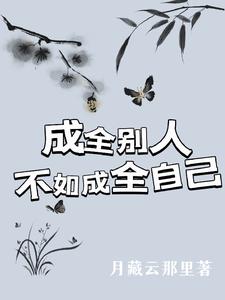The child who usually could barely finish half a bowl of food now eagerly ate two full bowls without needing coaxing and without feeling uncomfortably full. How could Boss Qian not be overjoyed?
Qian Jiabao brought a gift she had personally caught for her grandfather, delighting the old man immensely. The moment he heard his granddaughter needed help from her cousins, he summoned all the grandsons home without hesitation.
Among them, Qingqing spotted several familiar faces—classmates from school, including one who had always been her rival, the person she longed to surpass.
It was rare for Qian Jiabao to ask her cousins for favors, so they didn’t even wait for her to explain before eagerly volunteering.
"Why not let the child stay a few more days at home?" Qian Jiabao’s grandfather couldn’t bear to part with her.
"Jiabao ate two full bowls of rice at lunch—big bowls, mind you—and plenty of dishes too. She didn’t feel the slightest discomfort. In just ten days, she’s gained weight, and her voice sounds stronger than before."
"Then don’t delay. Send her over tomorrow. If Jiabao can eat well and grow healthier there, nothing else matters more."
The old man was so eager he almost insisted on delivering her himself.
With a reluctant gaze, he watched his granddaughter leave before gathering his grandsons.
"Help your cousin properly with whatever she needs, and then check how she’s settling in there. If anything’s missing, make sure Jiabao gets it."
"Understood, Grandpa."
The adults stayed out of the children’s playful squabbles, but long-suppressed tensions among them suddenly erupted.
With the economic reforms, more and more farmers flocked to the cities for work. At first, their wages were low, but they labored tirelessly, unlike the state-owned enterprise workers who stuck to fixed schedules.
Driven by the need to earn, they worked day and night, and their pay gradually rose. Their relentless effort to keep their jobs even made the regular workers feel pressured.
But that wasn’t the main issue. The real problem was the skyrocketing prices alongside economic growth—especially for alcohol and tobacco, which had increased five to tenfold. A bottle of liquor that once cost eight yuan now sold for forty, and a pack of cigarettes priced at 1.8 yuan now went for over ten.
Workers’ salaries were fixed. Even university professors earned only two hundred yuan a month—barely enough to support a family.
"It’s gotten this bad?" Yang Yufen and the others listened as Little Zhang recounted the situation.
"Yeah, the streets were nearly impassable. I didn’t dare linger—just delivered the goods and left quickly."
Professor Wen and the others frowned. If this unrest wasn’t addressed, it could spiral into something far worse.
"Workers in state-owned factories have stable jobs and good benefits, but migrant laborers in the city, though earning decent wages now, lack job security. Most can’t compare to the state workers."
Professor Wen spoke objectively. During her time at the orchard, she had met some of Yang Yufen’s fellow villagers and asked about their wages and daily lives.
Uprooted from their homes, they crammed into shared dormitories—some even in makeshift sheds—and worked grueling shifts from dawn till late at night, with barely any time for lunch.
When there was no work, they earned nothing, and they had to guard the worksite, unable to leave freely.
Yet not a single one complained. During the New Year, only two representatives returned home to deliver everyone’s earnings while the rest kept working.
"The core issue is the rising prices. Lately, everything’s gotten more expensive. Even the children’s handmade shuttlecocks, which used to sell for twenty cents, now go for fifty."
"Not just the workers—even professors’ salaries feel inadequate. With prices soaring, even if they’re forced back down, this uproar shows that wage adjustments are unavoidable."
Aunt Wang chimed in, "But if wages are adjusted, won’t everyone’s have to increase?"
Yang Yufen was curious.
"If wages are raised, it won’t just be for workers. Salaries across all industries will likely follow."
Professor Wen’s words soon proved true.
Fan Juan had been swamped lately. As part of the economic department, she was knee-deep in policy adjustments, with no time to spare for the factory.
Then, abruptly, her superior called her into the office.
"Fan Juan, you’ve had exposure to stock markets abroad. If our country were to open a stock exchange, do you think it would be beneficial or not?"
"Open a stock market? Really? The stock market controls the economic lifeline. Overseas, market volatility can collapse a company overnight. But it’s also a crucial gateway for international integration."
Fan Juan explained foreign stock markets and her own experience trading gold—details that could easily be verified anyway.
"Fan Juan, which enterprises do you think would be suitable for the first wave of listings if this happens?"
Fan Juan stayed silent, her eyes fixed on her superior.
"The workers are protesting low wages, prices are surging, and state-owned enterprises rely on limited funding. Without capital injection, raising workers’ salaries is just an empty promise."
"Fan Juan, you’re young. Our nation’s economic development is still in its infancy, but if we move too cautiously, how will we ever catch up?"
Fan Juan was stunned. Her elder superior, despite his age, was bolder and more decisive than she had imagined. She had expected to be tasked with lowering prices or negotiating with factory leaders to placate the workers.
"Fan Juan, would you dare to go south? To assess the development of our special economic zones? As the nation’s capital, we can’t afford to fall behind."
"Of course I dare."
Fan Juan stood tall, her gaze resolute and bright.
By summer’s end, the children had gained much—not just money, but life lessons too. When it was time to leave, they were reluctant to part with the orchard’s elderly caretakers.
"I’ll visit often," Li Wu said, his eyes misty.
"Good, good," replied Chef Zhou, Uncle Yang, and the other elders, though they knew the children’s education couldn’t be delayed.
The girls were even more emotional. Qian Jiabao, prone to tears, sobbed quietly, making Boss Qian consider letting her stay a couple more days.
"If we don’t leave now, the sun will be too harsh. We still have to clean up at home after being away so long. The orchard isn’t far—you can come back anytime."
At Yang Yufen’s words, the children’s sadness lifted.
"Why can’t we all go to the same school?" Qian Jiabao murmured, watching her friends depart, her head resting on Qingqing’s shoulder.
"Your father doesn’t have that kind of influence. But if you work hard, maybe one day you’ll end up at the same school."
Boss Qian patted his daughter’s shoulder, giving her an encouraging look.







